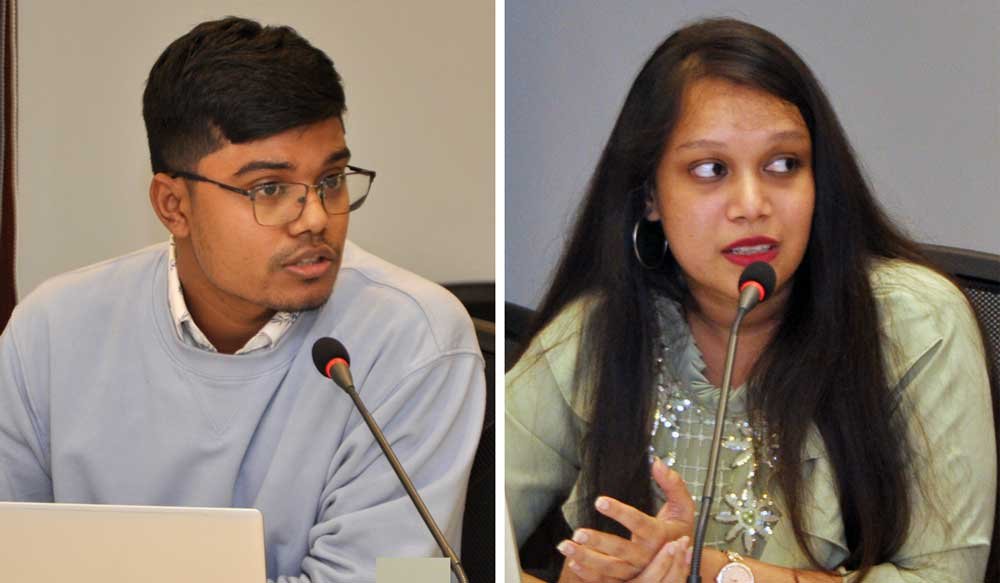
As a part of the regular capacity-building initiatives of the Centre for Policy Dialogue (CPD), the in-house session of the 59th Young Scholar Seminar Series (YSSS) was organised by CPD on 22 December 2022. Mr A S M Shamim Alam Shibly, Research Associate, CPD, and Ms Fabiha Idris, Programme Associate, CPD, presented their research papers at the session. Dr Khondaker Golam Moazzem, Research Director of CPD, chaired the session. Mr Foqoruddin Al Kabir, Research Associate, and Helen Mashiyat Preoty, Research Associate, were the convenors of YSSS.
Mr A S M Shamim Alam Shibly presented his paper on “Skills Demand Analysis on Ready-made Garments & Textile (RMG&T) Sector in Bangladesh”. The paper is jointly authored by Dr Khondaker Golam Moazzem, and Professor Shah Md Ahsan Habib, Professor, BIBM. The objectives of the paper were to identify skills gaps and projected demand of priority occupations in the RMG&T sector and to identify the future occupations along with forecasted demand considering Fourth Industrial Revolution (4IR).
He highlighted the skill requirements, skills gaps and required training for different occupations in the RMG&T sectors. Considering 4IR, future occupations and their projected demand were also discussed.
Mr Shibly recommended that a technical committee should be formed to review the existing National Skills Qualifications Framework (NSQF), and necessary standardisation of skills should be made in terms of international standards.
The research paper on “Socio-economic Differentiations on Pre-school Preferences: A Study on Dhanmondi Area“ was presented by Ms Fabiha Idris. Finding out the knowledge about preschool among parents and finding the socio-economic differentiations on pre-school preferences were the objectives of her study.
The study revealed that children from better socioeconomic conditions, such as having parents with a higher income and a higher level of education, have ample scope to attend preschool. Most parents who were unaware of pre-school or could not send their children were unable to do so because of financial constraints. Furthermore, the majority of respondents supported pre-school and said that it aided their children’s overall development. Although the study had a limited scope and sample size, further research can show a pattern of socioeconomic effect on children’s engagement in the preschool system.
Distinguished Fellows Dr Debapriya Bhattacharya and Professor Mustafizur Rahman, along with Researcher Fellows, Research Associates, Programme Associates, and Interns of CPD, were present at the session, many of whom participated in an open floor discussion and shared their valuable insights.


